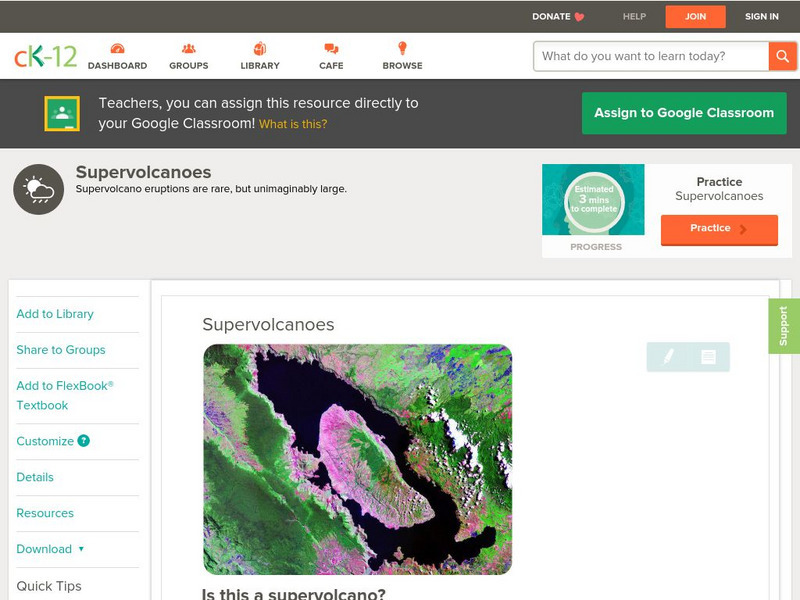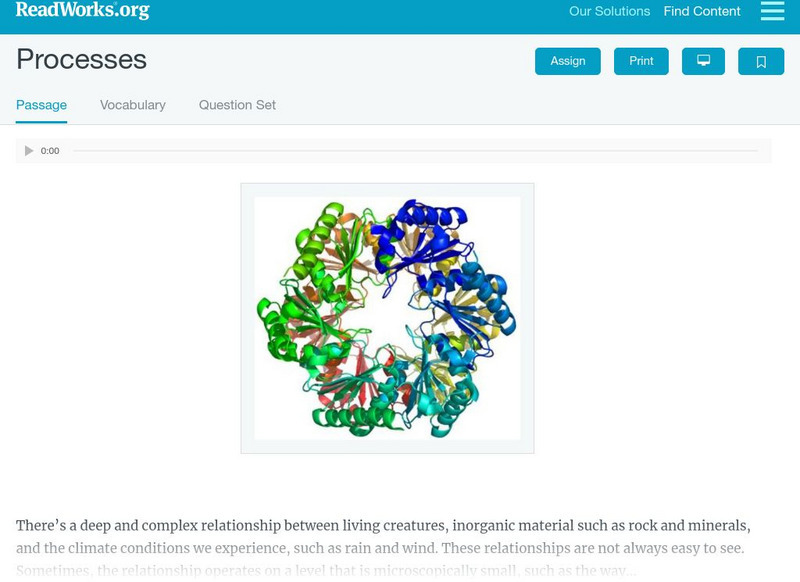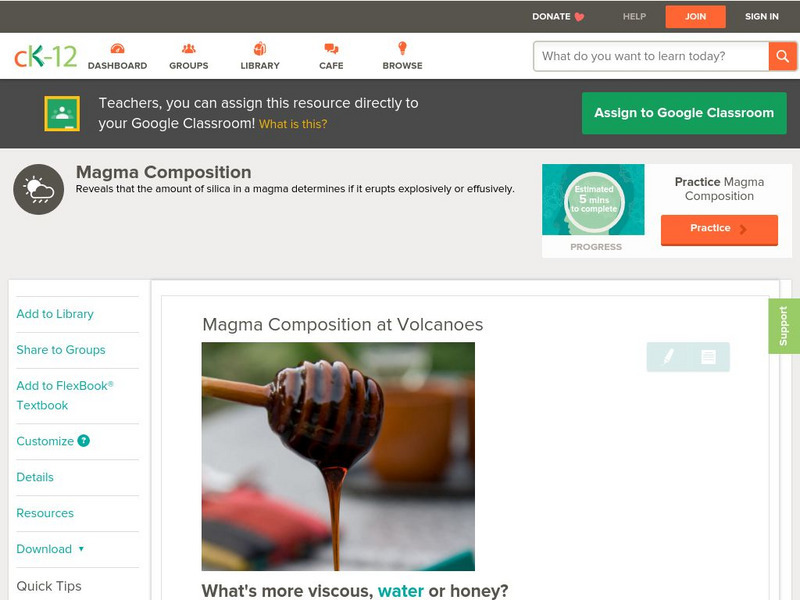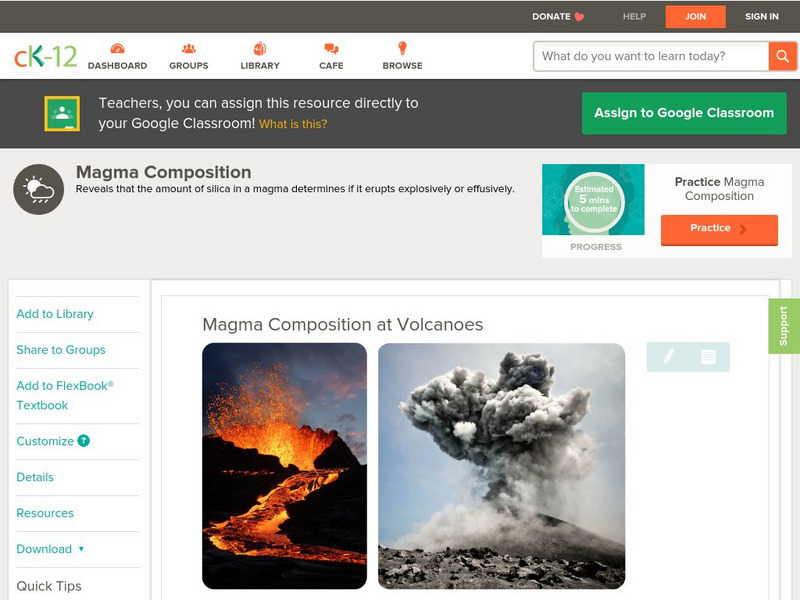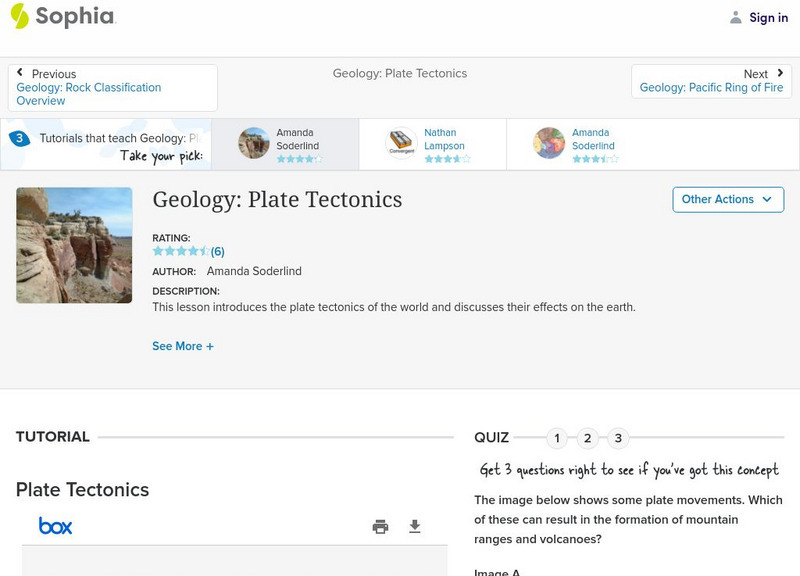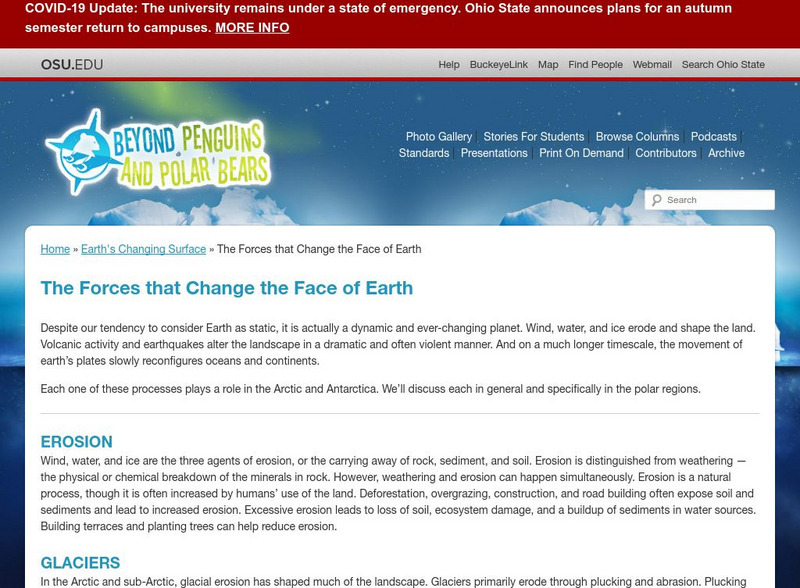PBS
Nova: Mystery of the Megaflood: What on Earth Made This?
See if you can figure out what formed eight different spectacular geologic formations. Pictures are provided along with hints.
US Geological Survey
Usgs: Volcanic Hazards, Features, and Phenomena
Site from the U.S. Geological Survey provides a brief list of volcano terminology including descriptions as well as links to major menus.
US Geological Survey
Usgs: Natural Hazards Programs: Lessons Learned for Reducing Risk [Pdf]
This site provides links to articles about natural disasters such as volcanoes, earthquakes, landslides, floods, etc.
CK-12 Foundation
Ck 12: Earth Science: Predicting Volcanic Eruptions
[Free Registration/Login may be required to access all resource tools.] How scientists can predict volcanic eruptions.
CK-12 Foundation
Ck 12: Earth Science: Supervolcanoes
[Free Registration/Login may be required to access all resource tools.] Supervolcanoes are unimaginably large volcanoes.
CK-12 Foundation
Ck 12: Earth Science: Supervolcanoes
[Free Registration/Login may be required to access all resource tools.] Supervolcanoes are unimaginably large volcanoes.
CK-12 Foundation
Ck 12: Earth Science: Tornadoes
[Free Registration/Login may be required to access all resource tools.] Describes how tornadoes form, their effects, and how they are measured.
CK-12 Foundation
Ck 12: Earth Science: Tornadoes
[Free Registration/Login may be required to access all resource tools.] Describes how tornadoes form, their effects, and how they are measured.
Natural History Museum
Natural History Museum: Volcanoes and Earthquakes
As an online exhibit from the Natural History Museum, this site provides three videos on natural processes of Earth. The videos cover tsunamis, earthquakes, and volcanoes.
Mocomi & Anibrain Digital Technologies
Mocomi: Carbon Cycle
The carbon cycle is one of the most important cycles. It is the biogeochemical cycle by which carbon is exchanged among the biosphere, pedosphere, geosphere, hydrosphere, and atmosphere of the Earth. This cycle is important because it...
Read Works
Read Works: Processes
[Free Registration/Login Required] An informational text about amazing processes and how they connect. A question sheet is available to help students build skills in reading comprehension.
CK-12 Foundation
Ck 12: Earth Science: Magma Composition at Volcanoes
[Free Registration/Login may be required to access all resource tools.] The composition of magma affects the type of volcanic eruption.
CK-12 Foundation
Ck 12: Earth Science: Magma Composition at Volcanoes
[Free Registration/Login may be required to access all resource tools.] The composition of magma affects the type of volcanic eruption.
Sophia Learning
Sophia: Geology: Plate Tectonics
An basic introduction to plate tectonics and the Earth's processes related to this phenomenon.
Annenberg Foundation
Annenberg Learner: Dynamic Earth Interactive
Delve into the structure of the Earth to learn what causes earthquakes, volcanoes, and more.
Science Education Resource Center at Carleton College
Serc: Exploring Sugarloaf Cove: Geology of Lake Superior's North Shore
Learners gather information about a restored wetland, pebble beach, and lava flows at Sugarloaf Cove on Minnesota's North Shore. Students in the field will make observations using field notebooks and digital media equipment while...
American Geosciences Institute
American Geosciences Institute: Earth Science Week: Geologic Maps and Groundwater
This activity is designed to give students practice using a geologic map to understand how water shapes the land- and is stored within the land- in part of the Grand Canyon.
NASA
Nasa: Our Restless Planet
This animation library is a great resource for a diverse list of earth science topics including: tsunamis, land subsidence, magnetic fields, volcanoes earthquakes, floods, and sea level changes.
US Geological Survey
Usgs: Plate Tectonics, Hot Spots, and Ring of Fire: World Map
A world map featuring active volcanoes, plate tectonics, hot spots, and ring of fire.
National Geographic
National Geographic: Encyclopedia: Weathering
Nat Geo's encyclopedia entry will identify and explain what weathering is and how it affects Earth and the life on it. Check out the vibrant photographs will illustrate the weathering processes around the globe.
The Wonder of Science
The Wonder of Science: Ms Ess2 2: Geoscience Processes at Varying Scales
Assessment templates, videos, examples, lesson plans, and photos of student work that directly address standard MS-ESS2-2: geoscience processes at varying scales.
The Wonder of Science
The Wonder of Science: Ms Ess2 1: Cycling of Earth's Materials
Work samples, phenomena, assessment templates, and videos that directly address standard MS-ESS2-1: cycling of earth's materials.
Ohio State University
Beyond Penguins and Polar Bears: The Forces That Change the Face of Earth
Learn how different types of Earth processes change Earth's surface.
Success Link
Success Link: Water Cycle
A lesson plan to show learners' understanding of the water cycle through illustrations, and their ability to write creatively about it.






